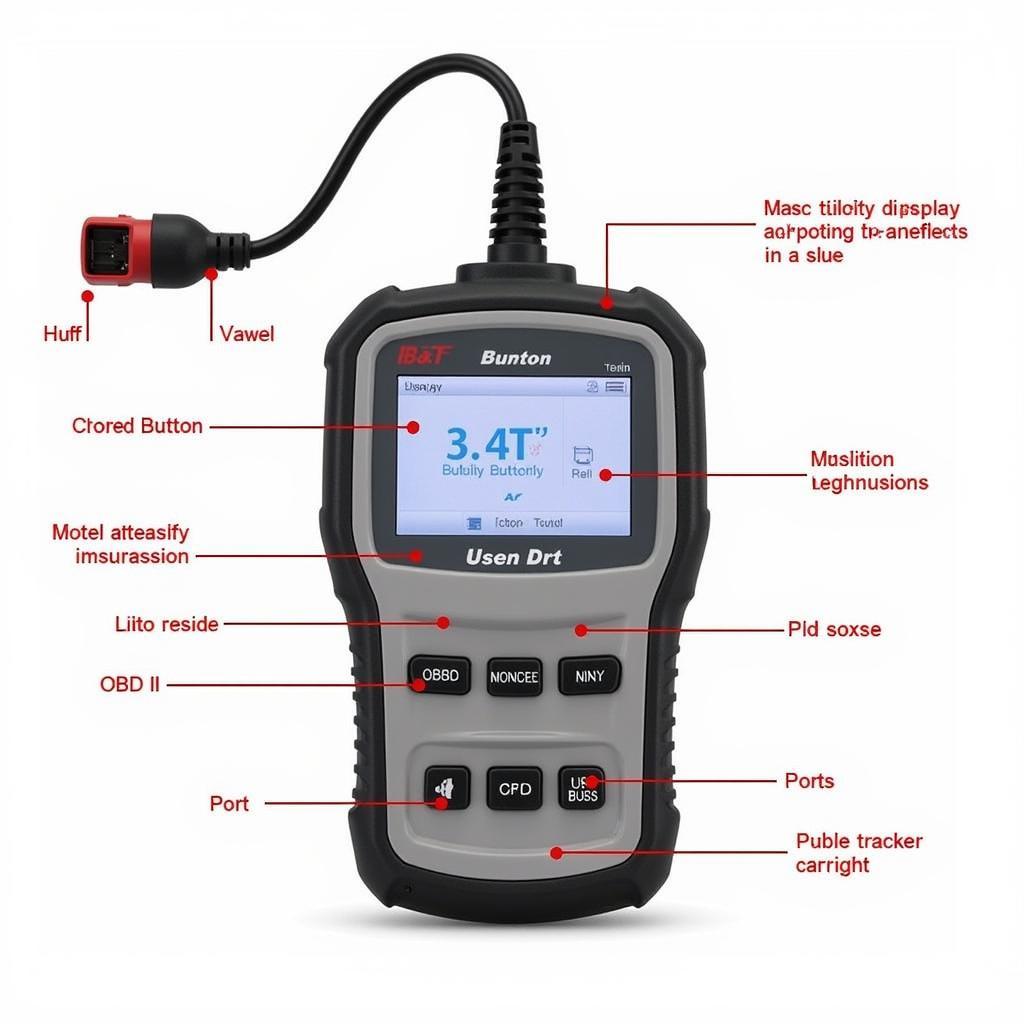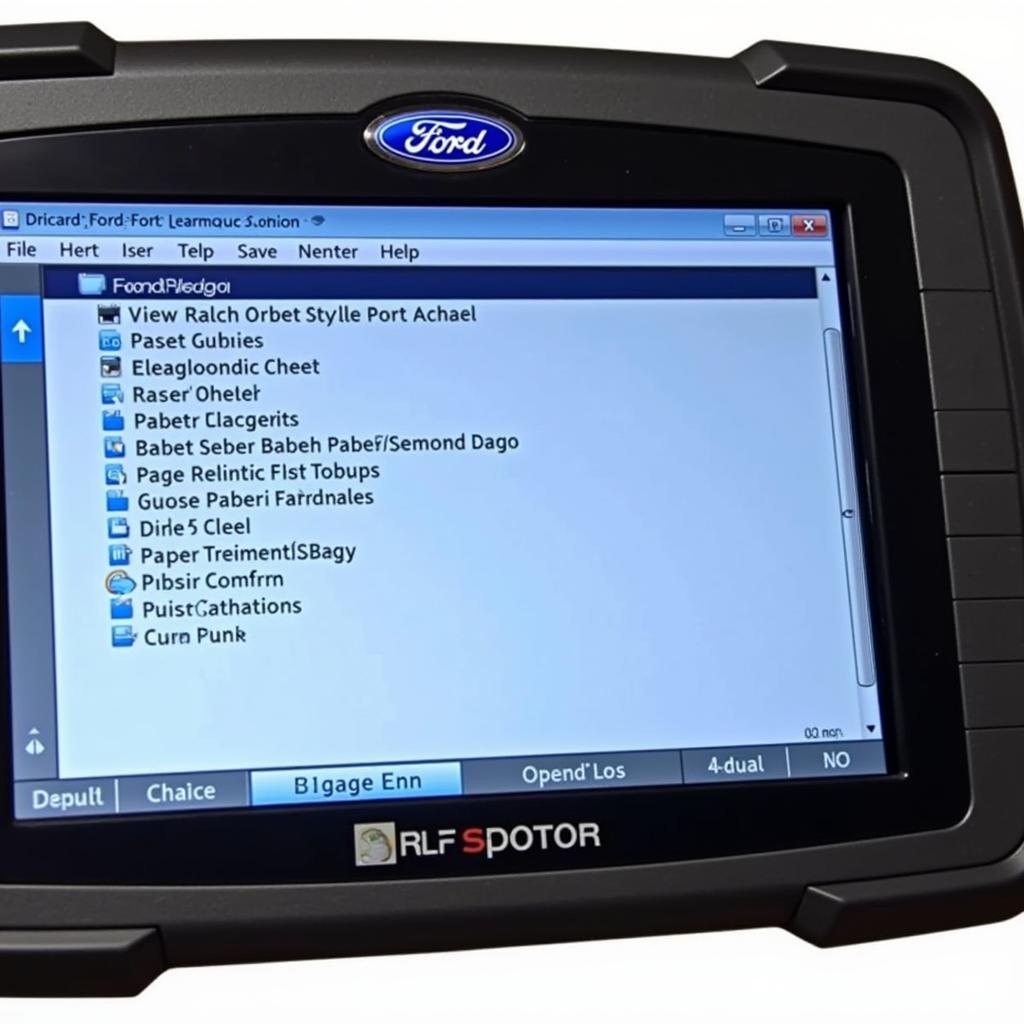Nội dung bài viết
- Understanding the Nissan CVT and Temperature Monitoring
- What Does “Nissan CVT Temp” Mean on a Generic Scan Tool?
- Why is Monitoring CVT Temp Important?
- Diagnosing CVT Issues Using a Generic Scan Tool and CVT Temp Readings
- How to Interpret High CVT Temp Readings
- What to Do if You Suspect a CVT Problem
- Conclusion
- FAQ
Troubleshooting Nissan CVT transmission issues can be a real headache, especially when you’re relying on a generic scan tool. You’re staring at that ominous “CVT Temp” reading, wondering what it really means and if your transmission is about to give up the ghost. This guide will empower you to interpret those readings, diagnose potential problems, and determine your next steps.
Understanding the Nissan CVT and Temperature Monitoring
Nissan Continuously Variable Transmissions (CVTs) are known for their fuel efficiency and smooth operation. However, they can also be susceptible to overheating, particularly under demanding driving conditions. Monitoring the CVT fluid temperature is crucial for preventing serious damage. While a dedicated Nissan consult tool provides detailed diagnostics, a generic OBD-II scan tool can still offer valuable insights into your CVT’s health by displaying the “CVT Temp.”
What Does “Nissan CVT Temp” Mean on a Generic Scan Tool?
The “CVT Temp” reading on a generic scan tool represents the temperature of the CVT fluid. This temperature is a critical indicator of the transmission’s operating condition. Excessively high temperatures can lead to fluid degradation, damage to internal components, and ultimately, transmission failure. Understanding what constitutes a normal operating temperature and how to interpret deviations from this norm is essential for anyone working with Nissan CVTs.
Why is Monitoring CVT Temp Important?
Overheating is a common cause of CVT failure. By regularly monitoring the CVT fluid temperature, you can identify potential problems early on and take preventative measures. This can save you from costly repairs or even a complete transmission replacement down the road.
Diagnosing CVT Issues Using a Generic Scan Tool and CVT Temp Readings
While a generic scan tool won’t provide the same level of detail as a Nissan consult tool, it can still be a valuable diagnostic aid. Here’s how you can use it in conjunction with the CVT Temp reading:
-
Establish a Baseline: Drive the vehicle under normal conditions and note the typical CVT Temp reading. This will serve as your baseline for comparison.
-
Monitor Under Stress: Observe the CVT Temp while driving under more demanding conditions, such as towing, driving uphill, or in hot weather. A significant increase in temperature under these conditions could indicate a developing problem.
-
Check for Error Codes: Even with a generic scan tool, you can retrieve diagnostic trouble codes (DTCs) related to the transmission. These codes can provide further clues about the nature of the problem.
-
Look for Patterns: If you consistently observe high CVT Temp readings under specific driving conditions, this can help pinpoint the root cause of the issue.
How to Interpret High CVT Temp Readings
Consistently high CVT Temp readings suggest a problem that requires further investigation. Possible causes include low fluid levels, a failing CVT cooler, or internal transmission damage.
“Ignoring a high CVT Temp reading is like ignoring a check engine light. It’s a warning sign that shouldn’t be disregarded,” says John Miller, a seasoned automotive technician with over 20 years of experience specializing in transmission repair.
What to Do if You Suspect a CVT Problem
If you suspect a problem with your Nissan CVT, based on high CVT Temp readings or other symptoms, it’s essential to take action promptly. Continuing to drive with a failing CVT can lead to catastrophic damage.
-
Check the Fluid Level: Ensure the CVT fluid is at the correct level. Low fluid levels can contribute to overheating.
-
Inspect the CVT Cooler: Check the CVT cooler for leaks, blockages, or damage. A malfunctioning cooler can prevent the fluid from being cooled effectively.
-
Consult a Specialist: If you’re unable to identify the problem yourself, or if you suspect internal transmission damage, consult a qualified Nissan technician or a transmission specialist. They will have the necessary tools and expertise to diagnose and repair the issue properly.
Conclusion
Using a generic scan tool to monitor “Nissan CVT Temp” can be a valuable first step in diagnosing potential transmission problems. While it may not offer the comprehensive diagnostics of a dedicated Nissan consult tool, it can still provide crucial insights into your CVT’s health. By understanding how to interpret these readings and taking proactive steps when necessary, you can protect your Nissan CVT and avoid costly repairs. Don’t hesitate to reach out to the experts at ScanToolUS at +1 (641) 206-8880 or visit our office at 1615 S Laramie Ave, Cicero, IL 60804, USA for further assistance and expert advice. We’re here to help you keep your Nissan running smoothly.
“Regular monitoring and proactive maintenance are key to extending the life of your Nissan CVT,” adds Sarah Chen, a leading automotive engineer specializing in transmission design.
FAQ
-
Can I use any generic OBD-II scan tool to read Nissan CVT Temp? Most generic OBD-II scan tools should be able to access the CVT Temp data. However, some basic models may not have this capability.
-
What is a normal CVT Temp reading? Normal operating temperatures can vary, but generally fall between 175°F and 220°F.
-
What should I do if my CVT Temp is consistently above 220°F? This indicates a potential problem and requires immediate attention. Consult a qualified technician for diagnosis and repair.
-
Can I replace CVT fluid myself? While it’s possible, it’s generally recommended to have a qualified technician perform this service.
-
How often should I check my CVT fluid level? It’s a good idea to check the fluid level at least every other oil change.
-
What are the symptoms of a failing CVT? Symptoms can include overheating, slipping, shuddering, or a complete loss of power.
-
How much does a Nissan CVT replacement cost? The cost of a replacement can vary depending on the model and year of your vehicle, but can range from $3,000 to $7,000 or more.



